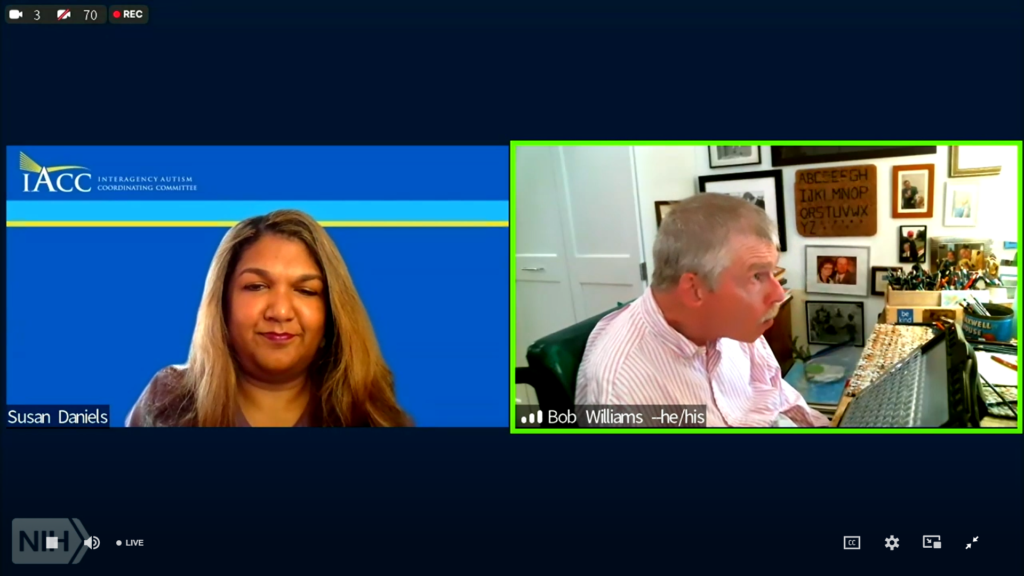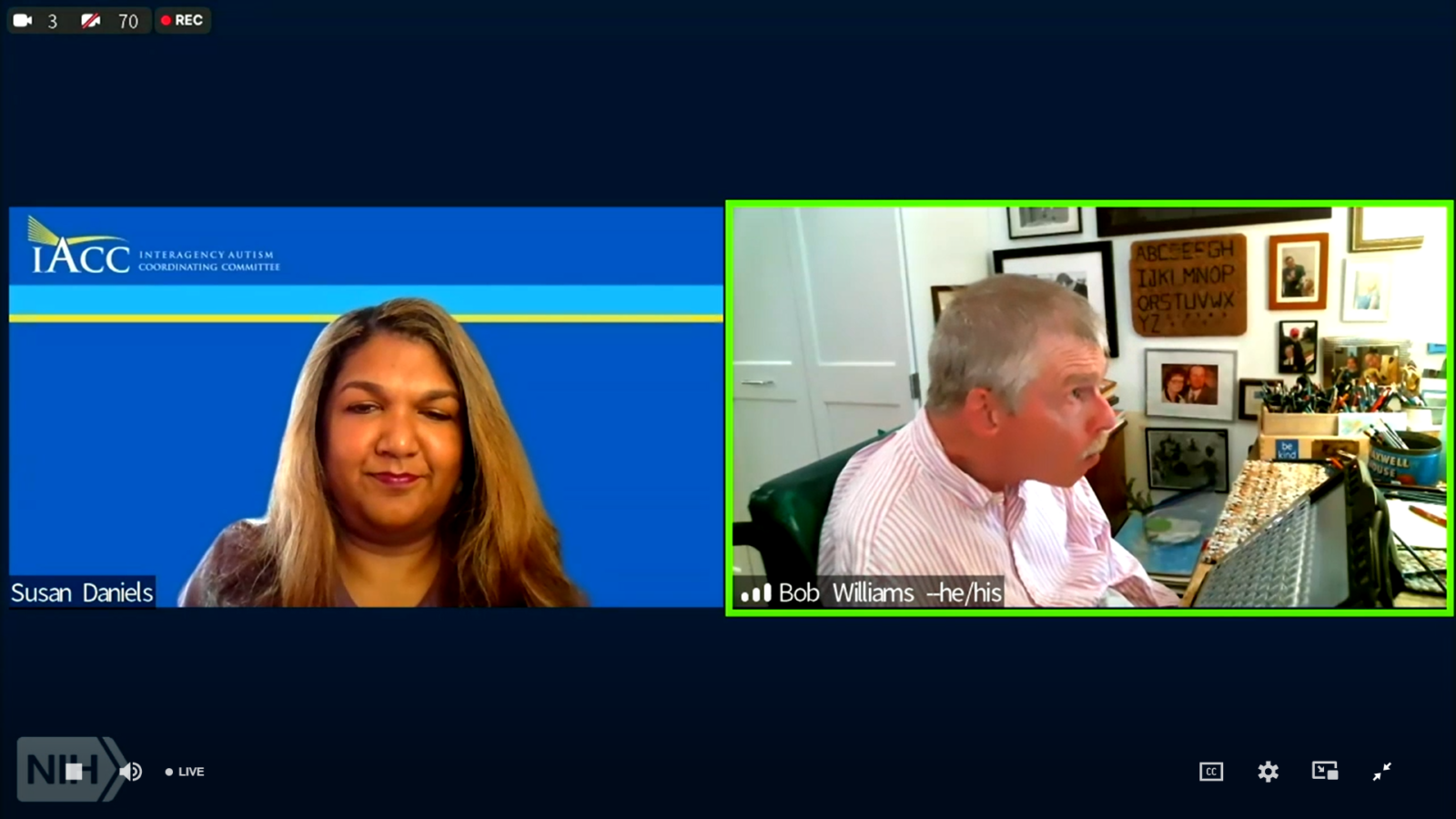 CommunicationFIRST was one of five entities and individuals invited to deliver three-minute “oral” public comments to the US Interagency Autism Coordinating Committee (IACC) on April 14, 2022, before the IACC’s first session in years devoted to the topic of the communication support needs of autistic people. CommunicationFIRST’s Policy Director, Bob Williams, delivered these comments on behalf of CommunicationFIRST. The text of CommunicationFIRST’s full formal written comments to the IACC can be accessed here. A recording of the session can be accessed here. Bob’s comments begin at minute 11:30 of the recording.
CommunicationFIRST was one of five entities and individuals invited to deliver three-minute “oral” public comments to the US Interagency Autism Coordinating Committee (IACC) on April 14, 2022, before the IACC’s first session in years devoted to the topic of the communication support needs of autistic people. CommunicationFIRST’s Policy Director, Bob Williams, delivered these comments on behalf of CommunicationFIRST. The text of CommunicationFIRST’s full formal written comments to the IACC can be accessed here. A recording of the session can be accessed here. Bob’s comments begin at minute 11:30 of the recording.
Good afternoon. I am Bob Williams, Policy Director of CommunicationFIRST, the only organization led by and for the estimated 5 million people in the U.S. with significant speech-related disabilities, including 30-40% of autistic people. Before co-founding CommunicationFIRST, I was a senior executive at HHS [the US Department of Health and Human Services]. Earlier, I also worked on closing an institution.
Thank you for inviting us to comment on the critical challenge of Addressing the Communication Needs of Autistic People. We submitted written comments on April 1, 2022. Due to the time limit, I will make just two points today.
First, like so many of my nonspeaking autistic friends and colleagues, I was regarded as “so severely and profoundly disabled,“ my parents were told to drop me at the institution and never return. Luckily, in the 1960s, I somehow was able to point to and type to letters and words early, get a good education, and go on to college.
Today, however, we find young people and adults are denied these same opportunities, which ironically federal law now is meant to guarantee as their civil rights.
Second, many still are stamped with the same “severe and profound“ brand. Having worked with individuals labeled this, my experience is it becomes a justification for giving up on someone. I am a past Board member of TASH, which removed the term from its name in 1980 because it dehumanized those whose most basic right is to be recognized as human beings.
If the IACC is considering recommending certain terminology be used, we strongly urge it to make certain it does so in equal partnership with autistic nonspeaking people, and their organizations.
If you have questions on our written comments or my comments today, I can answer now or in writing. If there is any assistance we can provide, we will be glad to do so.
Thank you once more.

